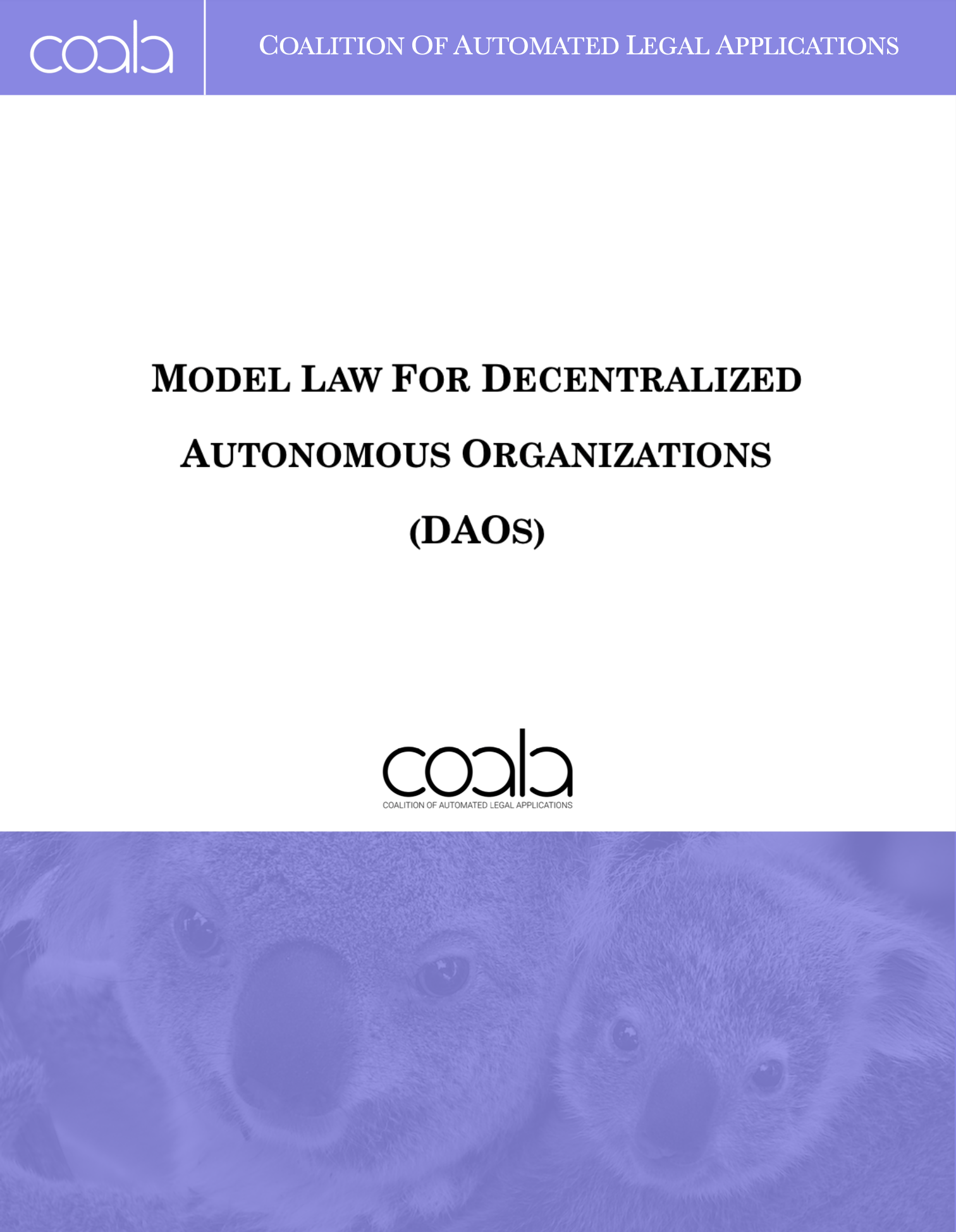The COALA expert group has been working for more than two years on a model law for DAOs (see the LexTech Institute’s project Model Law for Decentralized Autonomous Organizations (DAOs)). Now that the project has materialized, COALA is seeking input from legal experts and anyone else interested in the use of blockchain technology in their economic activities in order to finalize the DAO Model Law.
DAO, quick presentation
A DAO (Decentralized Autonomous Organization) is a completely digitized organized entity that operates similarly to a company with its governance rules being inscribed on a blockchain. A group of individuals with a common goal can thus undertake an economic activity in a decentralized manner and manage capital – in particular crypto-assets – thanks to new digital tools using blockchain technology.
Current legislative void
Although some states have introduced legislation allowing DAOs to be set up according to their national law (e.g. Vermont and Malta), in the same way as another form of company such as an SA or Sàrl, the vast majority of DAOs have been set up outside any regulatory framework. There is currently no law that defines the legal status of these so-called “maverick” or “anational” DAOs (see Do DAOs exist in Switzerland?), which generates great legal uncertainty for their users, in particular as regards the nature of legal relationships between DAO members (i.e., internal relations) and between DAO and third parties (i.e., external relations).
The DAO Model Law approach
Following an in-depth comparative law analysis, the COALA group of experts came to the conclusion that the very architecture of blockchain technology meets a large number of regulatory requirements arising from company law. The principles of functional and regulatory equivalence have been integrated at the very core of the DAO Model Law in order to derive maximum benefit from the architecture of DAOs. According to the Model Law, DAOs must comply with a limited number of rules in order to acquire legal personality and be subject to rights and obligations in states that have adopted the Model Law.
How to contribute to the Model Law?
Join the AMA (ask me anything) webinar today, June 23rd, 6:00 p.m. CEST / 12:00 p.m. EST / 9:00 a.m. PST by clicking on this link: https://sciencespo.zoom.us/j/8789855081. The session will bring together international experts and will be conducted exclusively in English.
The model law can be viewed below:


